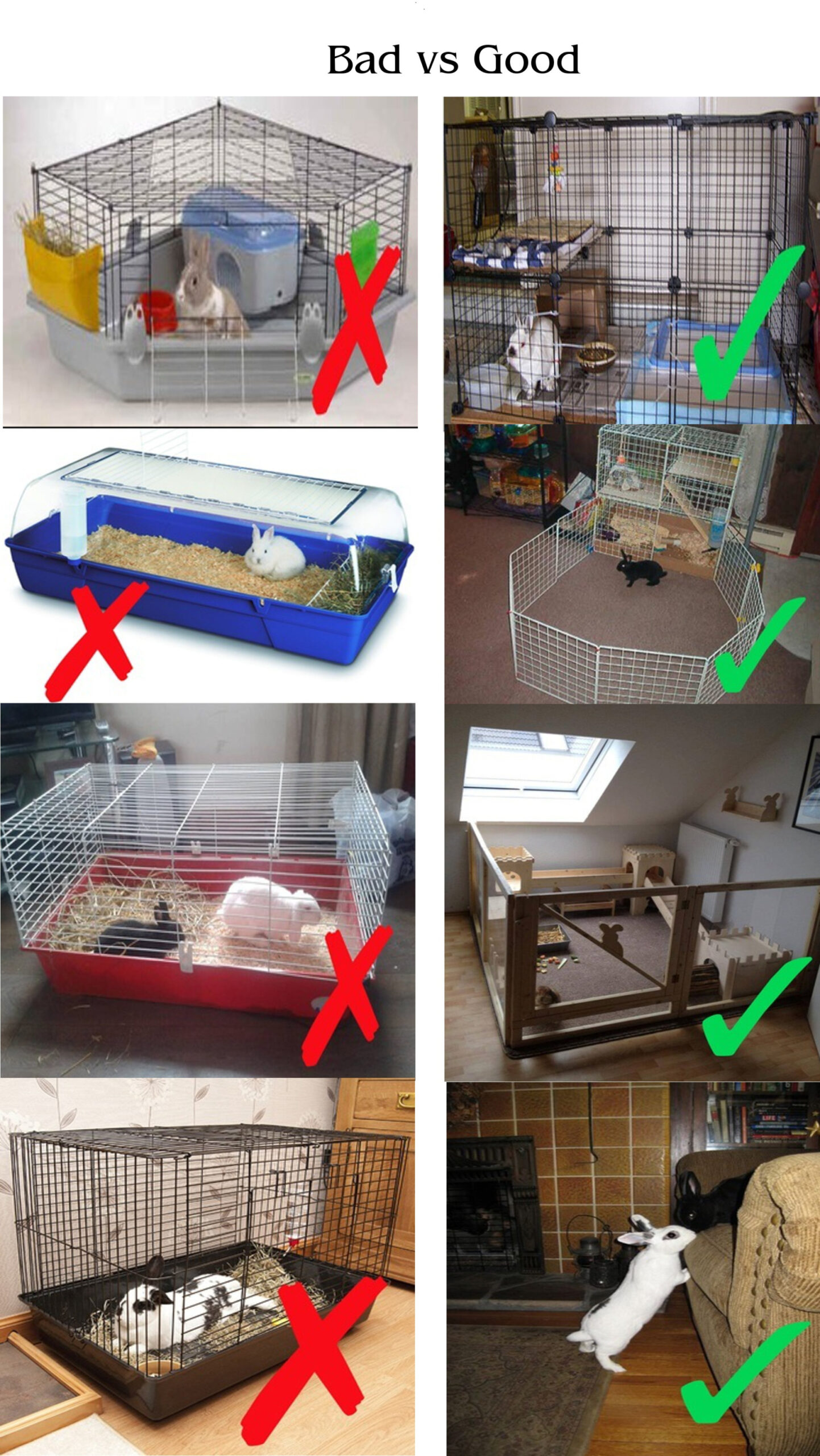What Do Rabbits Need In Their Cages?
When it comes to keeping rabbits as pets, it is important to provide them with a comfortable and safe living environment. Their cages play a crucial role in ensuring their well-being and happiness. In this article, we will discuss what rabbits need in their cages to thrive.

1. Sufficient Space
The foremost requirement for a rabbit cage is enough space to accommodate the rabbit comfortably. Rabbits are highly active animals and need room to hop, run, and explore. A minimum cage size for a small rabbit should be at least 4 square feet, while larger breeds may need more space. It is better to opt for a larger cage to allow for ample movement.
2. Solid Flooring
Rabbits have delicate feet, so it is essential to provide them with a solid flooring material that is not wire mesh. Wire mesh flooring can cause discomfort and even injury to their paws. Solid flooring made of plastic, wood, or a blanket is ideal for their cages. Additionally, it is important to cover the flooring with absorbent bedding to maintain hygiene and provide insulation.
3. Enrichment and Entertainment
Rabbits are intelligent creatures that require mental stimulation and entertainment. Their cages should include various toys, tunnels, and chewable objects to keep them engaged. Providing hiding spots such as cardboard boxes or tunnels made of PVC pipes also helps recreate their natural instinct to burrow and hide.
4. Food and Water
Access to fresh water and a balanced diet is crucial for a rabbit’s health. Ensure that their cages have a water bottle or bowl that is securely attached and cannot be tipped over. Additionally, provide them with a constant supply of hay, fresh vegetables, and a small amount of pellets. It is important to monitor their food intake and adjust accordingly to prevent obesity or malnutrition.
5. Proper Ventilation
Good airflow is essential to maintain a healthy environment for rabbits. The cage should have proper ventilation to prevent the buildup of ammonia from urine and provide fresh air. However, it is important to ensure that the cage is not placed in a drafty area, as this can be detrimental to their well-being.
6. Regular Cleaning
Cleanliness is of utmost importance when it comes to rabbit cages. Regularly removing soiled bedding, feces, and uneaten food helps prevent odor and the growth of bacteria. The frequency of cage cleaning depends on the size of the cage and the number of rabbits housed within it.
7. Safety First
Rabbits are curious animals and can be prone to accidents if proper safety measures are not taken. Ensure that the cage is placed in a secure location, away from potential hazards such as sharp objects, toxic plants, and other pets. Additionally, check the cage for any sharp edges or protruding wires that may harm the rabbit.
FAQs
1. Can I keep my rabbit in a small cage?
No, rabbits require ample space to move around and exercise. A small cage can lead to behavioral issues, muscle atrophy, and overall poor health. It is recommended to provide a cage that is at least 4 square feet for small rabbits and even larger for bigger breeds.
2. How often should I clean the rabbit cage?
The frequency of cleaning the rabbit cage depends on the size of the cage and the number of rabbits housed in it. However, it is generally recommended to clean the cage at least once a week, removing soiled bedding, feces, and uneaten food. Regular cleaning helps maintain a hygienic environment for your rabbit.
3. What should I feed my rabbit?
A rabbit’s diet should consist of fresh hay, a variety of fresh vegetables, and a small amount of pellets. Hay is the most important component of their diet and should be available at all times. Make sure to introduce new vegetables gradually and monitor their digestive health.
4. Can I use wire mesh flooring in the rabbit cage?
No, wire mesh flooring can cause discomfort and injury to a rabbit’s delicate feet. It is recommended to provide solid flooring made of plastic, wood, or a blanket. The flooring should be covered with absorbent bedding for hygiene and insulation.
Providing a suitable living space for a rabbit is crucial for their overall well-being. By ensuring sufficient space, solid flooring, enrichment, proper food and water, ventilation, regular cleaning, and safety measures, you can create a comfortable and happy environment for your furry friend.
Related Articles…
Copyright Notice:
All images featured on this site are sourced from the internet, copyrights belong to respective owners. Should you own any image and require it to be removed, please contact us.